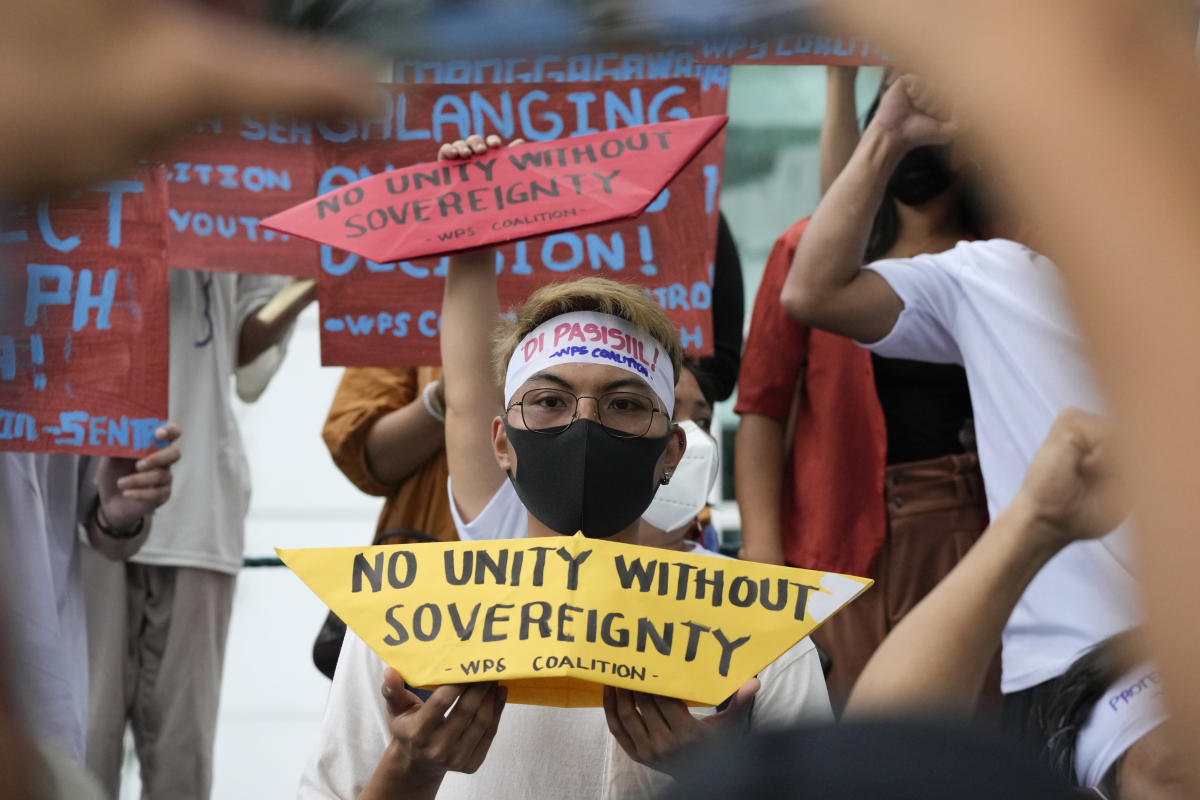MANILA, Philippines (AP) – US Secretary of State Antony Blinken reiterated a call on China to comply with a 2016 arbitration ruling invalidating Beijing’s massive claims in the South China Sea and warned Washington that is obligated to defend treaty ally the Philippines if its troops, ships or aircraft are attacked in the disputed waters.
Blinken’s statement, issued Tuesday by the US embassy in Manila, was released on the sixth anniversary of the 2016 decision by an arbitration tribunal set up in The Hague under the United Nations Convention on the Law of the Sea after the Philippine government in 2013. against China’s increasingly aggressive actions in the disputed sea.
China did not participate in the arbitration, dismissing its ruling as a sham and continues to defy it, leading it into territorial conflicts with the Philippines and other Southeast Asian claiming states in recent years.
“We once again call on the PRC to abide by its obligations under international law and to cease its provocative behavior,” Blinken said, using the acronym of China’s formal name.
“We also reaffirm that an armed attack on Philippine forces, public ships or aircraft in the South China Sea would invoke U.S. mutual defense obligations” under the 1951 U.S.-Philippines Mutual Defense Treaty, said Blinken.
Aside from China and the Philippines, Vietnam, Malaysia, Taiwan and Brunei have had overlapping claims in the busy waterway, which is believed to be rich in submarine gas and oil resources and carries an estimated $5 trillion worth of trade and goods through every year.
The flashpoint region has become a major front of the US-China rivalry.
Washington does not claim the disputed waters, but has deployed its naval ships and air force jets to patrol the waterway for decades, saying freedom of navigation and overflight in the disputed region is in the US national interest. That has provoked angry reactions from China, which has accused the US of meddling in a purely Asian dispute and warned it to stay away.
Philippine Foreign Minister Enrique Manalo said Tuesday the arbitration ruling would be a pillar of the new government’s policies and actions in the disputed region and rejected attempts to undermine the “unquestionable” decision.
“These findings are no longer within the scope of denial and refutation and are compelling because they are indisputable. The price is final,” Manalo said in a statement.
“We firmly reject attempts to undermine it … and even erase it from law, history and our collective memory,” said Manalo, not mentioning China but clearly alluding to it.
China would likely frown upon Manalo’s policy stance for the government of President Ferdinand Marcos Jr., who took office on June 30 after a landslide election victory.
Marcos Jr.’s predecessor, Rodrigo Duterte, put the arbitration ruling on the back burner for years after he took office in 2016 and established close ties with Chinese President Xi Jinping, while often criticizing US security policy.
In 2019, Duterte said he finally asked Xi at a meeting in Beijing to abide by the ruling, but was bluntly told by the Chinese leader: “We will not yield.”
Marcos Jr. confirmed the arbitration ruling, saying it would not allow even one “square millimeter” of Philippine waters to be trampled.
But in an interview with the DZRH radio network in January before he won the presidency, Marcos Jr. that China has refused to recognize the ruling, it won’t help resolve disputes with Beijing, “so that option isn’t available to us.”
Marcos Jr. then said Duterte’s policy of diplomatic engagement with China is “basically our only option.”
He faced calls on Tuesday asking China to abide by the arbitration ruling and reverse Duterte’s lenient approach that undermined Philippine sovereignty in the disputed sea.
Dozens of left-wing activists and workers protested in front of the Chinese consulate in Manila’s Makati financial district on Tuesday, asking Beijing to respect the arbitration ruling and Marcos Jr. to defend the territory and sovereign rights of the country in the South China Sea.
†
Associated Press journalists Joeal Calupitan and Aaron Favila contributed to this report.

